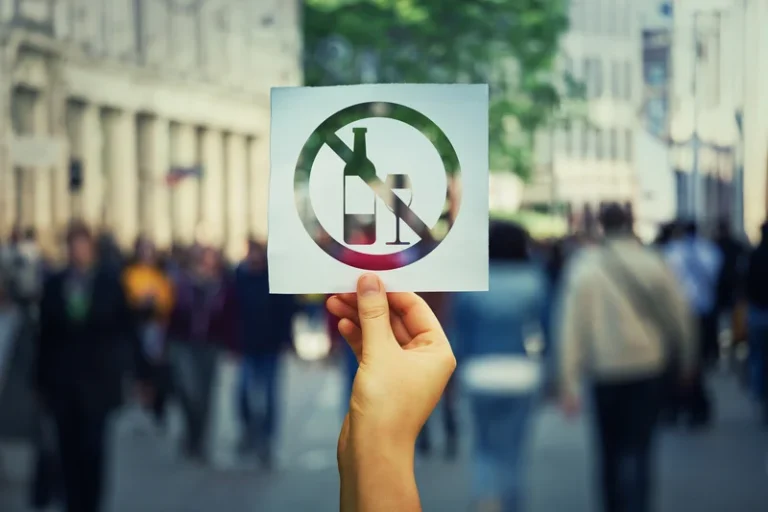
The 2-day hangover, as any one over the age of 30 will tell you, is real. If you’re hungover, you might also take OTC pain relievers like aspirin and ibuprofen. While these medications can be helpful for headaches and muscle pains, they may also irritate your stomach lining, causing nausea. Limiting how much alcohol you drink at one time is the most effective way to minimize the possibility of a hangover.
Alcohol is a depressant.
A higher blood THC blood concentration may increase https://ecosoberhouse.com/ the effects of the substance. However, study into this area is not conclusive, and older research has reported results to the contrary. It consists of several stages, including the prodrome (or pre-migraine phase), an aura, the migraine itself, and then a postdrome (or post-migraine phase). The postdrome phase is not often discussed when considering the effects of migraines.
- This article is for informational purposes only and does not constitute medical advice.
- This means that you’re more likely to wake up feeling tired and lethargic, contributing to symptoms of a hangover—even if you’ve not had that much to drink.
- But with medical assistance and tracking, it is possible to pinpoint solutions that may help you.
- If you’re in the throes of a nasty wine hangover and looking for a miracle hangover cure, you’re out of luck.
- “Alcohol itself is a depressant and has sedating effects,” Dr. Arielle Baskin-Sommers, a professor of psychology and psychiatry at Yale, said in an email to USA TODAY.
Mood changes
Hangovers resolve by themselves, usually by 24 hours after onset, however, drinking water and getting sleep can lessen some (but not all) of the symptoms of a hangover. For healthy adults, moderate drinking means up to one drink a day for women of all ages and two drinks a day for men. A “drink” in this case is considered a 5-ounce glass of wine or 12 ounces of bee (5% alcohol, less for stronger beers, so be sure to read the label). This article explains why hangover headaches occur, especially in people with underlying migraine disorders. It presents some home remedies to treat your headache until the hangover passes. But some people are more likely to have hangovers than others are.
Is it true that 2-day hangovers get worse with age?
Most of the time you just need to drink water, eat some food, and walk it off. But if you’ve had too much to drink, you may be harming your body and need to see your doctor for treatment. Hangover symptoms range from a mild headache to nausea and vomiting. These stem from physiological responses to the presence of alcohol in how long can a hangiver last your digestive and urinary systems, like your stomach, kidneys, and bloodstream.
- This might include support groups, therapy and alcohol addiction treatment.
- For example, drinking more alcohol (“hair of the dog”) won’t help a hangover.
- Dizziness is a common symptom of the dehydration that comes with a hangover.
- For almost as long as humans have had hangovers, we’ve tried to cure them with remedies that run the gamut, from vitamin B to pickle juice.
- As stated in the “Causes” section, certain alcohols have different hangover-causing properties based on their congener content.
When to seek further consultation for hangover

In most people, the body breaks down acetaldehyde before it causes problems. But it can cause inflammation in organs, leading to uncomfortable symptoms. Stop drinking completely when you’ve reached your limit (or before then). If you’re feeling queasy, avoid rich, greasy foods and stick to dry, bland foods like toast and crackers. Hangover headaches are common enough, but they can have an impact on daily life.
Postdrome Migraine: How to Cure a Migraine Hangover

Under normal circumstances, you go through about 4 – 6 complete cycles a night. However, if your body is still processing alcohol, you may never reach the deeper and most productive stages of sleep. Other people may wish to prevent hangover-related anxiety by reducing or eliminating drinking.

The only way to avoid a hangover is to limit how much you drink or to not drink alcohol at all. And if you find that hangovers are affecting your work or relationships, talk to your doctor about your drinking. Drinking can also affect your mood if you already have a mental health condition or use alcohol as a coping mechanism for your mental health.

Healthhaid
Others can drink far more and feel minimal symptoms afterwards. Dizziness is a common symptom of the dehydration that comes with a hangover. When you’re dehydrated, your blood pressure drops, which limits blood flow to your brain and causes dizziness.
- USA TODAY is exploring the questions you and others ask every day.
- This article will explore the symptoms, management, and prevention of the postdrome phase of a migraine.
- This substance can cause a fast pulse, sweating and nausea.
- Researchers don’t know why, but they think it may have to do with how nicotine works on your nervous system.
- We go over how long you can expect a hangover to last and some things you can do to get back to feeling like your normal self.
- She has over a decade of direct patient care experience working as a registered nurse specializing in neurotrauma, stroke, and the emergency room.
- ‘Obviously try and not drink too much (14 units per week is the recommended limit) and, as the old wives’ tale goes, don’t drink on an empty stomach.
- Treatment options are also available for those suffering from alcohol addiction.
However, drinking more does often make for a more severe hangover, and severe hangovers usually last longer. Some companies use misleading advertising to claim that their products can prevent hangovers. But the only guaranteed way to prevent a hangover is to not drink alcohol. A single alcoholic drink is enough to trigger a hangover for some people, while others may drink heavily and not have a hangover. Symptoms of a hangover generally last about 24 hours, but some people feel better after a few hours while others may have symptoms that persist for more than a day.
day hangovers: are they real and how do you get rid of them?
While the nausea is uncomfortable, it isn’t necessarily cause for concern. If you’re vomiting frequently, it’s important to be mindful of dehydration symptoms, like dark-colored urine, decreased urination, and fatigue. The fluctuations in blood sugar that accompany drinking can lead to negative moods, which might include anxiety and anger as well as mood instability. And the more you drink the night before, the more severe your hangover symptoms might feel the morning after. But they’re often not based in science, and some can be dangerous. For example, drinking more alcohol (“hair of the dog”) won’t help a hangover.
